An ode to the girls who set the fashion of Hip Hop and R&B part. 002
April Walker; the Sacagawea of Urban Fashion. The woman who became the pioneer of streetwear.
Welcome to part 2 of this 3 part series, where were talking about the women who paved the way and set the blueprint for fashion in hip hop. If you didn’t get a chance to read or you missed Part 1 where we talked about the one and only Misa Hylton, you can catch up here:
Today’s woman of discussion is one whose name and brand always seems come up and never goes forgotten for reasons unbeknownst to me in the conversations of early hip hop streetwear/fashion. She is regarded as a streetwear pioneer.
The woman of discussion today is…
April Walker
This week’s issue will talk about April Walker and her brand Walker Wear (now a heritage lifestyle fashion brand) that created a landscape and medium for hip hop to not only express themselves, but also exist within fashion.
This piece will include talk of her professional career of course… and as it pertains to gossip, if there’s anything interesting out there i’ll be sure to include it.
Just a heads up this is a lengthy read (about 13 minutes), so if you are viewing this in your email you may want to view it in your browser or on the Substack app. If not you won’t see the full article, as the article in its entirety will not show in the email.
THE
P R E F A C E
April Walker was raised in Brooklyn (Bed Stuy), the oldest of 3 sisters and 2 brothers. Her family was privileged enough to appreciate and celebrate art in all forms, but it’s clear they had an interest in music. Her grandfather was affiliated with the legendary group, The Treniers (and R&B group in the late 1950s) and her father worked within the music industry.
Growing up April was exposed to music, dance lessons, acting, singing, she’d even go to jazz clubs. April Walker grew up seeing the entrepreneur life since her father was in the music industry managing jazz artists (as well as artists like Jay-Z and D Train). She would be a self proclaimed hustler by 13, teaching gymnastics class and charging $5 a head. In highschool she would buy clothing wholesale and resell it.
Young April was in college for communications and business, deciding what to do with her life, while working at American Express. It was her junior year at State University of New York and her interest in college began to wean. Hip hop would get a hold of her and help her find her true calling. In 1984, April attended The Fresh Fest concert at Madison Square Garden. She’d see hip hop performers like Run DMC perform to an audience in sneakers (shell toe Adidas) and it was in that moment that everything she’d learned about dressing for success was no longer true. A trip to Dapper Dan’s store in Harlem one night after the Apollo would change the trajectory of her life. That visit Dapper Dan’s custom atelier would discover what she wanted to do with her life. She was so amazed, she even told herself “I’m going to open one of these in Brooklyn”.
A P R I L W A L K E R
In 1987 Fashion in Effect would start in the home of April Walker (using the help of her little sisters and Dapper Dan’s leant resources) and by 1988, at 21 years old, she would have her first brick and mortar custom atelier shop 212 Greene Avenue in Brooklyn (paying $. Just like Dapper Dan. The first woman of color (I didn’t say Black for a reason) to do so. The shop would be open as long as 12-15 hours a day, 7 days a week.
To buy a storefront within a year of starting up a clothing brand is insane. Especially with the main spread of business back then was via word of mouth. It took a minute for people to find out about the shop, but once they did everybody and they momma was there. The break-dancers, graffiti artists, hustlers, rappers and of course the real people who kept the business lucrative the loyal and hardworking customers with the 9-5’s. (the shop featured in 8-Mile, the movie starring Eminem) was based on Fashion In Effect). Fashion In Effect started off selling leather, suede, coats, dresses, and couture outfits and would quickly expand to a styling division that provided one-of-a-kind outfits for (hip hop) artists. April would make tuxedos, gowns, Easter suits, leather suits, coats and denim. They would mix fabrications using a substantial amount of velour and terry. Customers would go into the shop and ask for something they saw in a music video or at other retailers, and Fashion in Effect would recreate it. 15 year old Biggie Smalls would find himself in Fashion in Effect asking about an Eric B. and Rakim airbrushed t-shirt he saw in the display window. She realized that hip-hip had a need and she was more than happy to be the one to supply it.
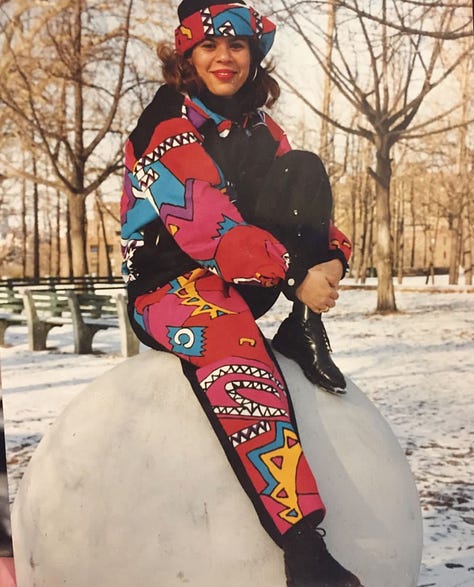
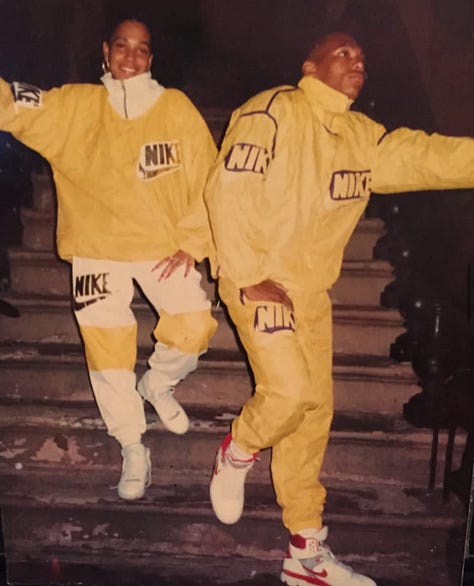
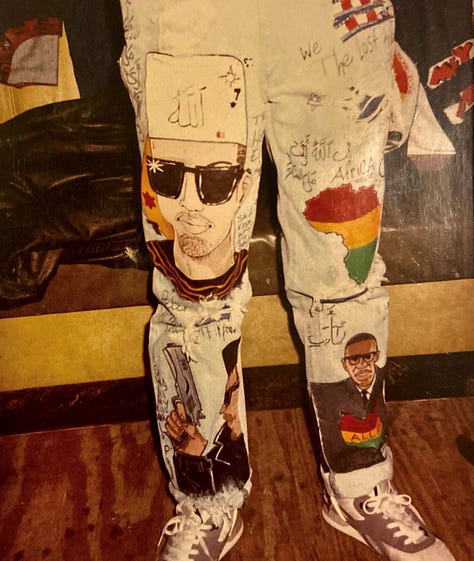
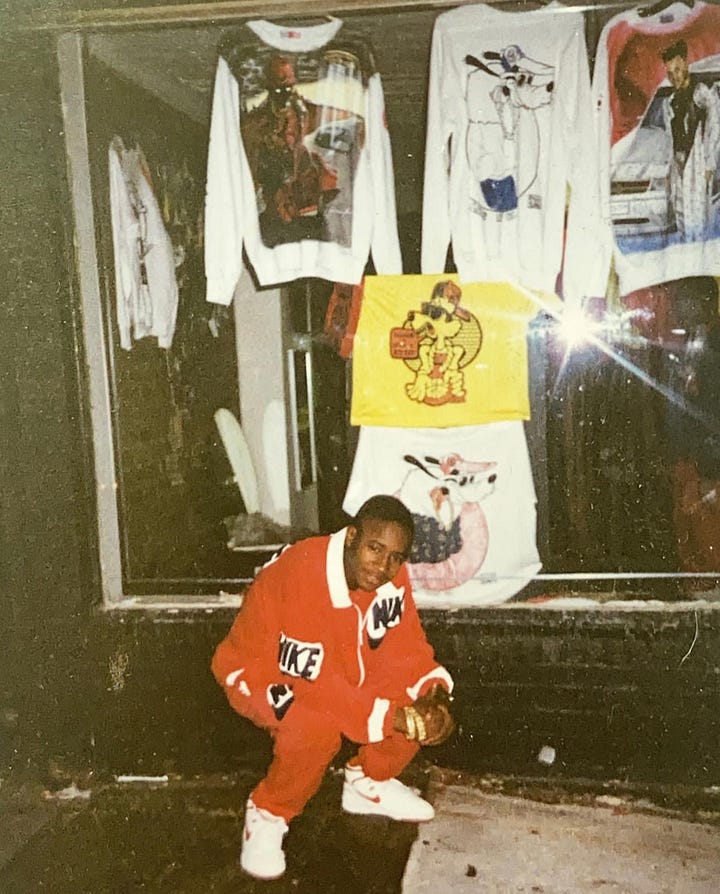
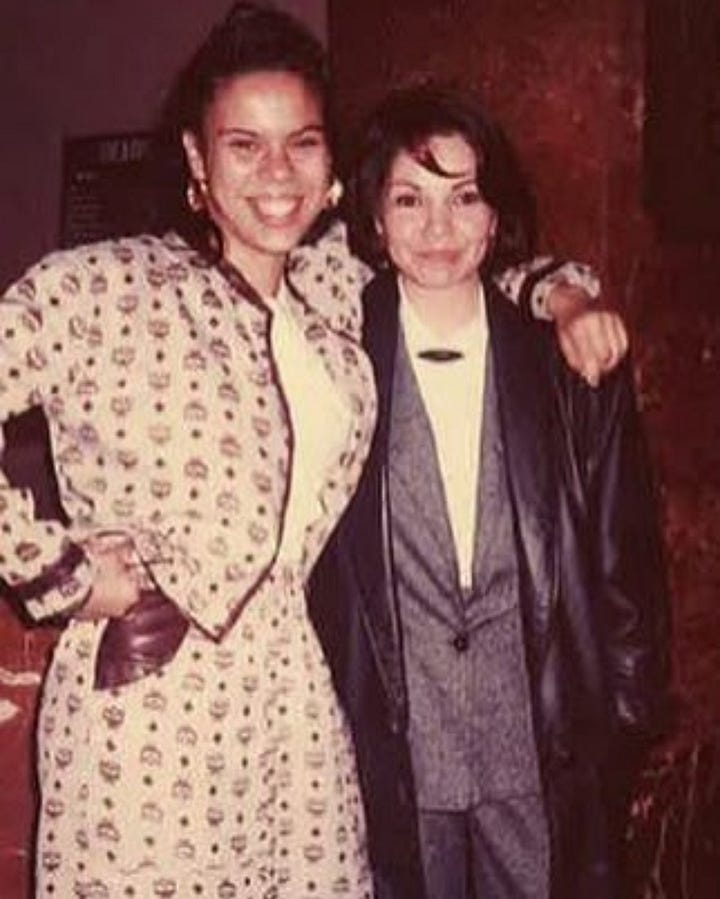
Audio Two (rap duo from Brooklyn) would be the first to showcase April’s work on an album cover, with their second studio album I Don’t Care: The Album which released April of 1990. After hearing about the Brooklyn based designer April, the hip hop duo stopped by Fashion In Effect looking to get some custom fits that would rep Brooklyn. This interaction would lead to the group asking April to style their next video. This would become the beginning of April’s styling division and business.
April noticed that customers seemed to repeatedly ask for the same thing. Deeper pockets, a lower crotch areas, straight legged jeans that was wide enough to fit over their timbs. April listened and as a result the rough and rugged suit, Walker Wear’s first piece would be born. Walker Wear, founded in 19921 would become a lifestyle/ streetwear brand that clothed and helped pioneer hip hop’s signature fashion. In fashion they say “You tell the consumer what they want, not the other way around”, but listening to the people, Walker Wear blended workwear and athletic gear with hip-hop’s already pronounced style and solidified the multi billion dollar industry today that is streetwear.
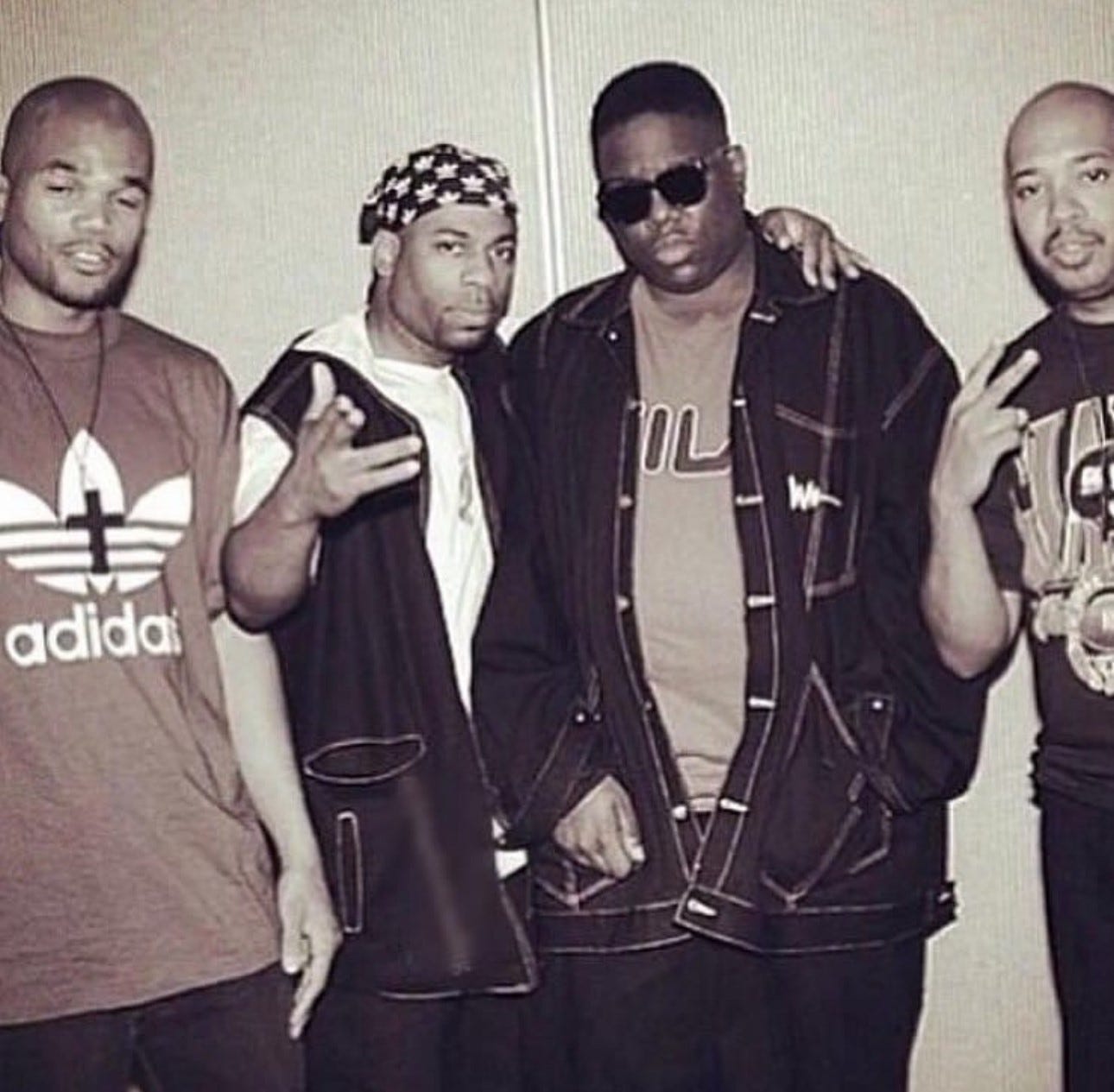
From Walker Wear’s inception it received a lot of celebrity (Black hip hop and R&B artists) endorsement. Throughout the 90s nearly every celebrity would don the double W’s at some point in time. Walker Wear was the first fashion brand to grace a heavy weight ring, thanks to Mike Tyson. Walker Wear also made its way to the big screen in movie film Above The Rim, thanks to Tupac.
If you Google “Walker Wear” a picture of Tupac in the brand will almost always populate. He repped the brand very heavily.
“I met Tupac on the set for Juice. I was an extra in it, hoping to get some light after starting my custom business. That day I remember I wore a royal blue, grey and white striped and solid custom velour sweatsuit with a matching bucket hat (hoping someone would ask for a card). It worked because that day I met Tupac. Soon after, he popped up on a video set with Stretch when I was styling the group, BWP aka “Bitches With Problems”, and the rest is history.”
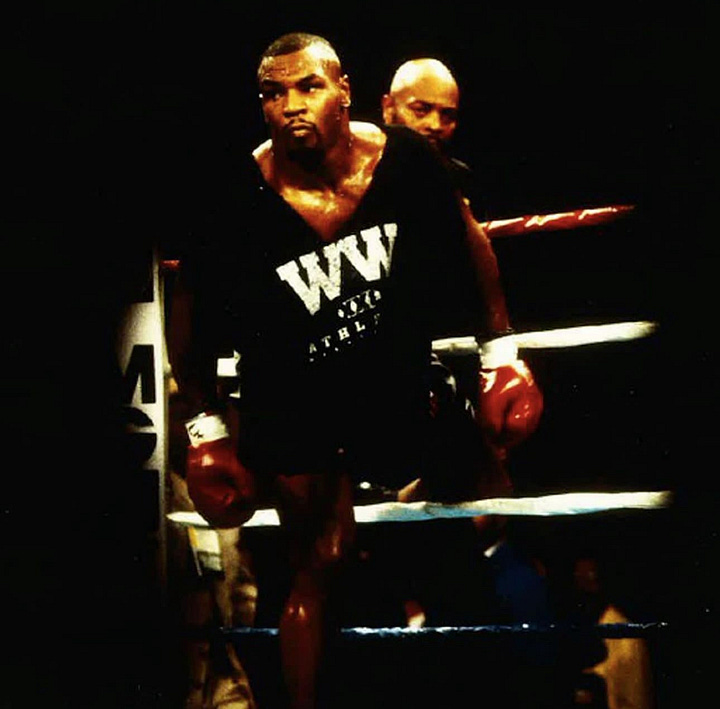
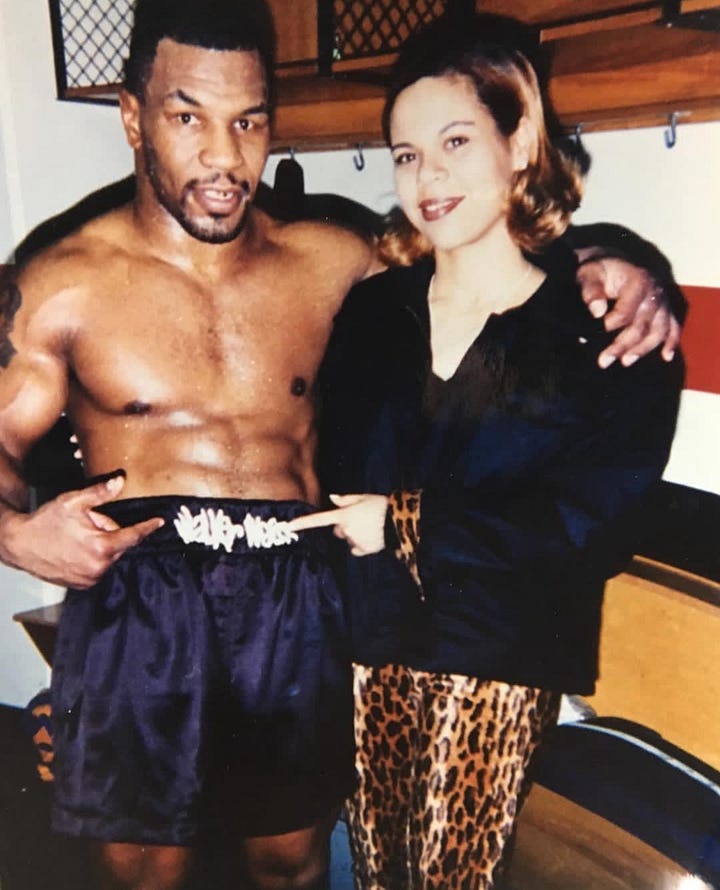
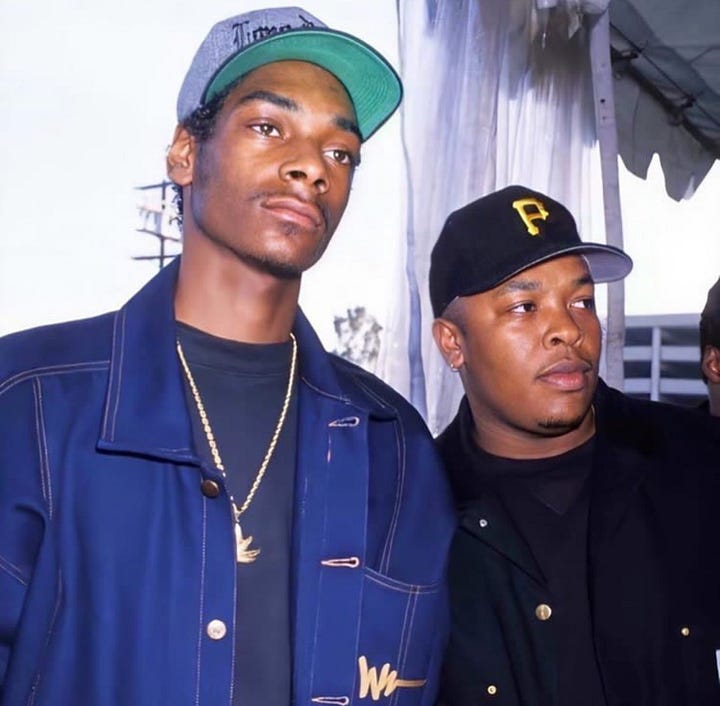
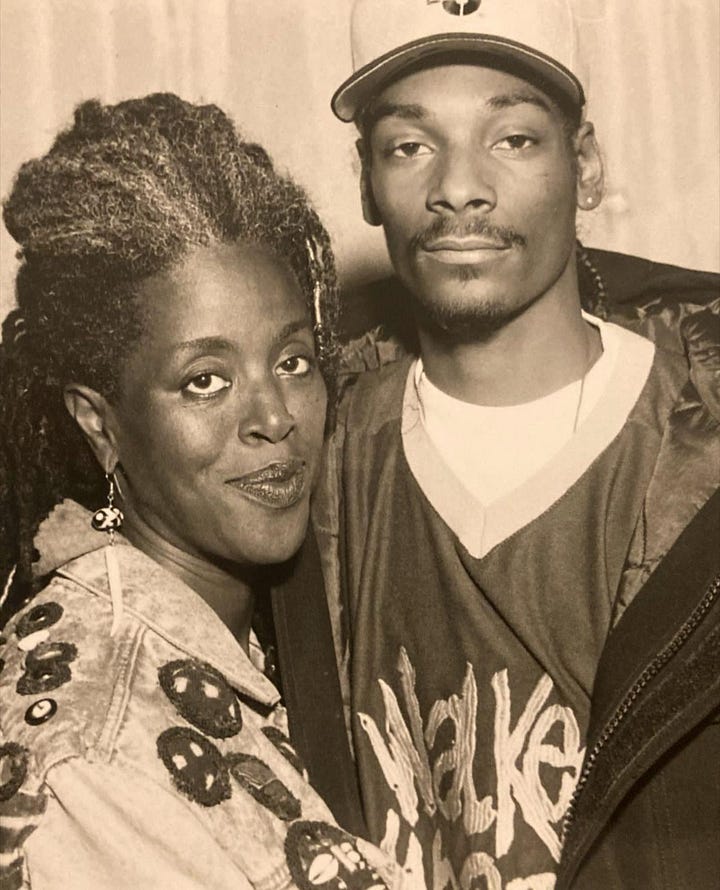
April understood the importance of optics. She shows us this by (1.) choosing not to make herself known as the owner of Walker Wear, because she believed men wouldn’t take her serious or wouldn’t want to buy clothes designed/ made by a woman. On the podcast Drink Champs (former MC) N.O.R.E. recalls many people thinking Walker Wear was owned by the group Run DMC or Naughty By Nature. April would purposely remain in the background, but would style the (male) groups in her gear, kind of making them the face of the brand.
“For the record, being a woman in a male dominated industry is tough. Bigger than racism in this fashion industry is sexism.”
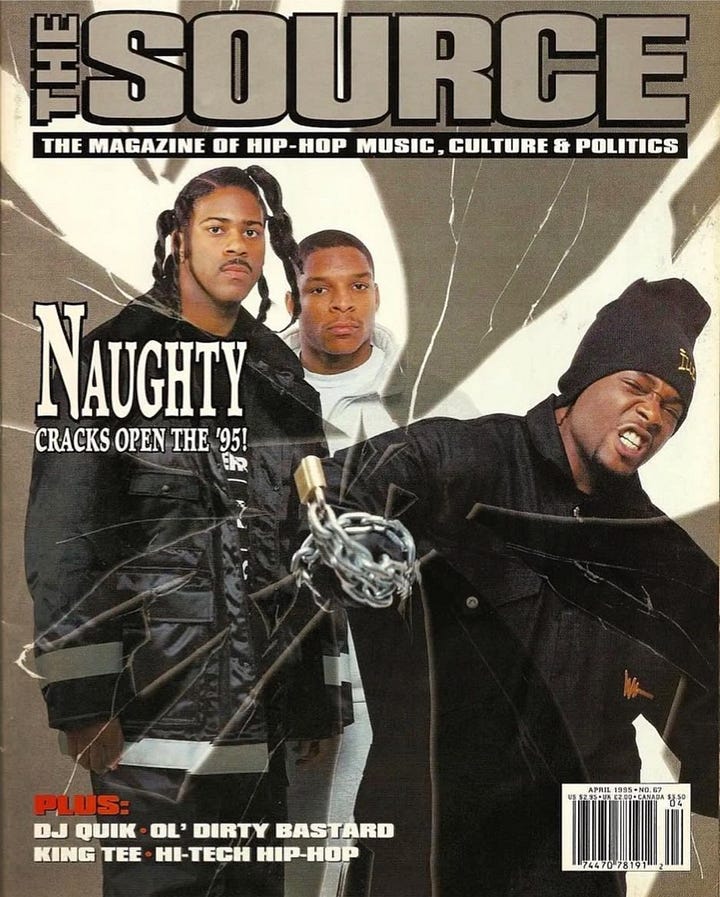
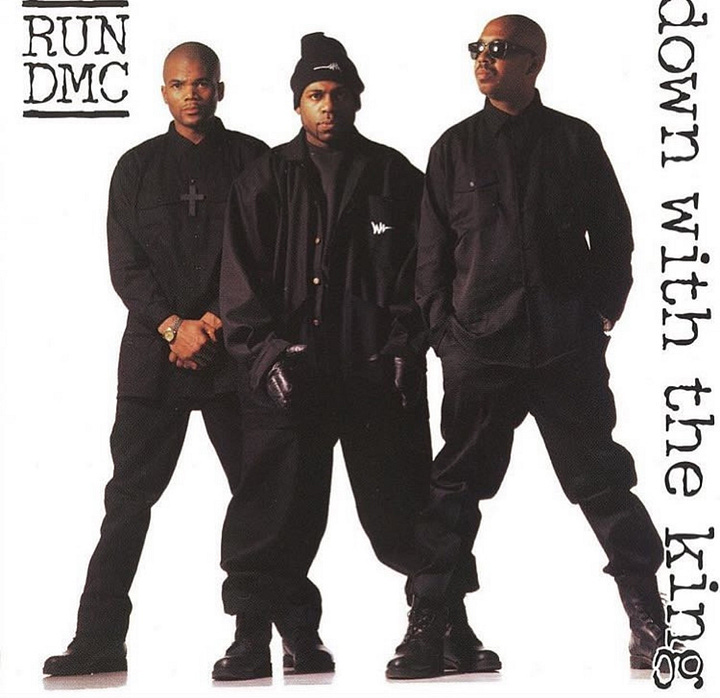
(2.) She would also constantly place her product in proximity to celebrities. Not just any celebrity either. They were well known and successful artists. Walker Wear was featured in magazines like The Source and Vibe, featured in shows like In Living Color, NY Undercover and Martin and even found its way in movies. Remember hip hop isn’t just a music genre. Hip hop is a lifestyle. So, it wasn’t just the rappers wearing Walker Wear, but athletes, actors/actresses, dancers, the working class, singers and even the drug dealers.

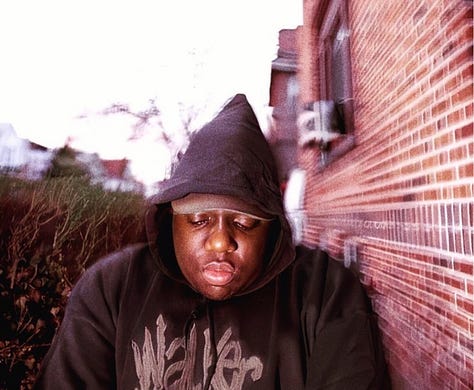
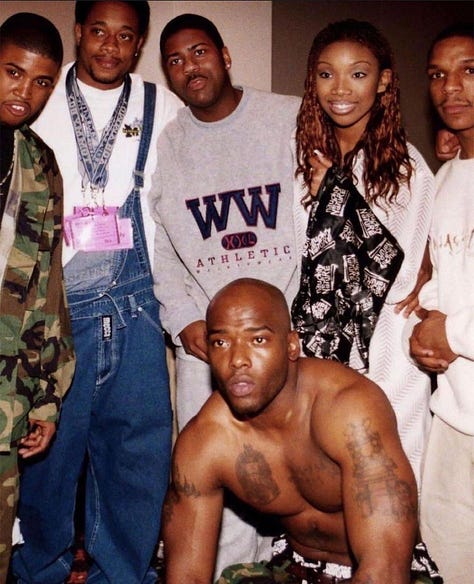
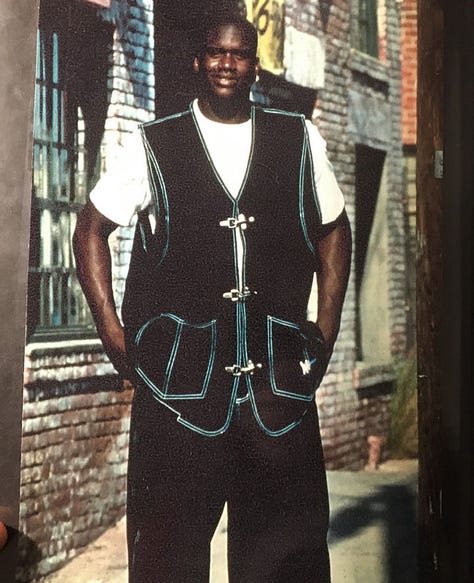
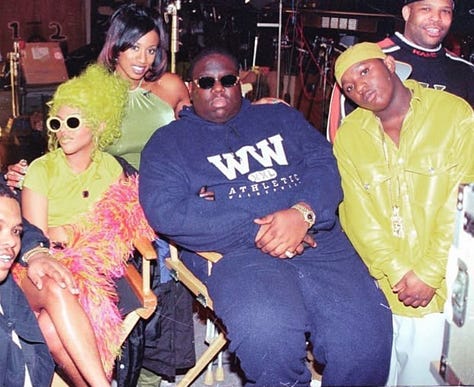
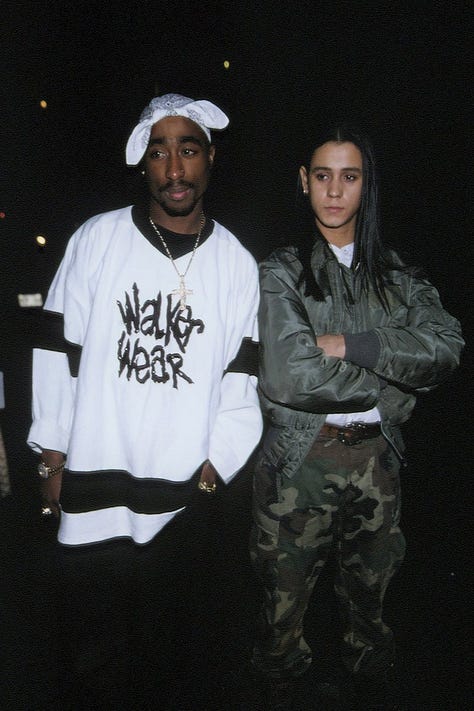
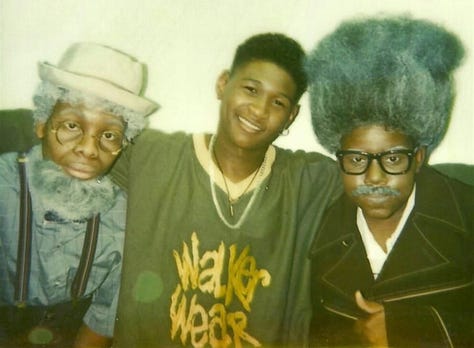
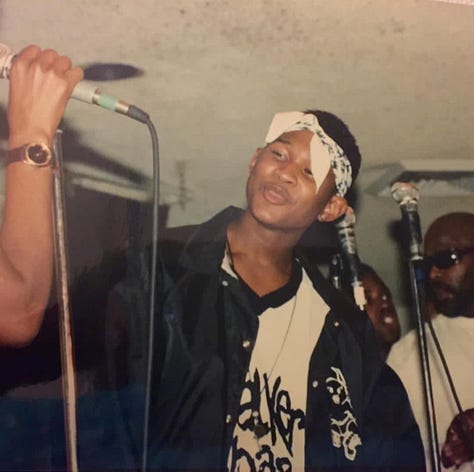
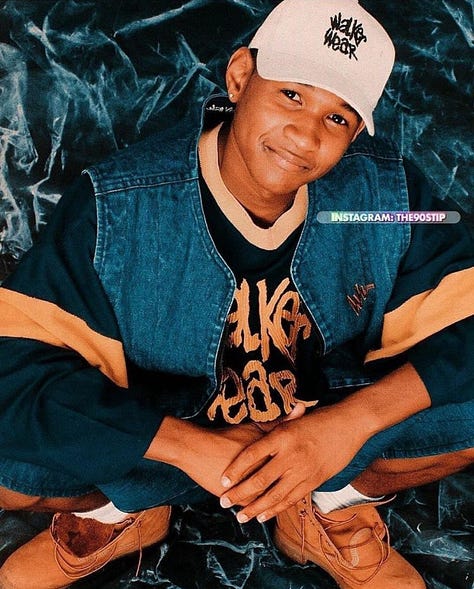
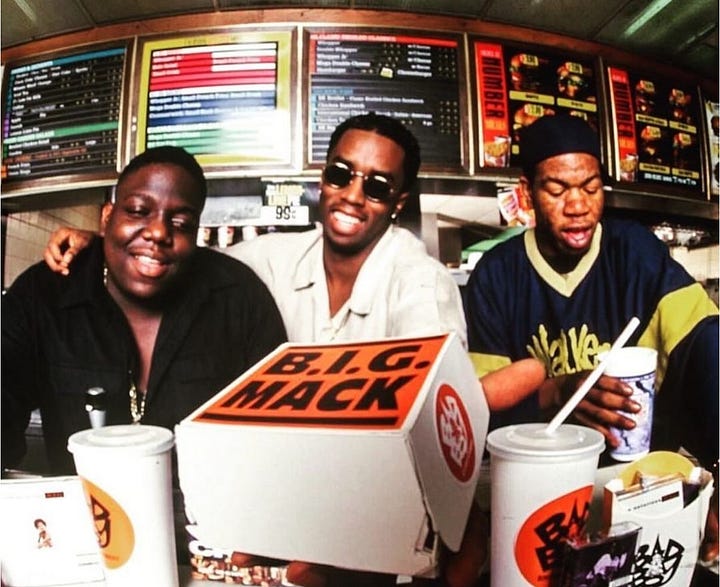
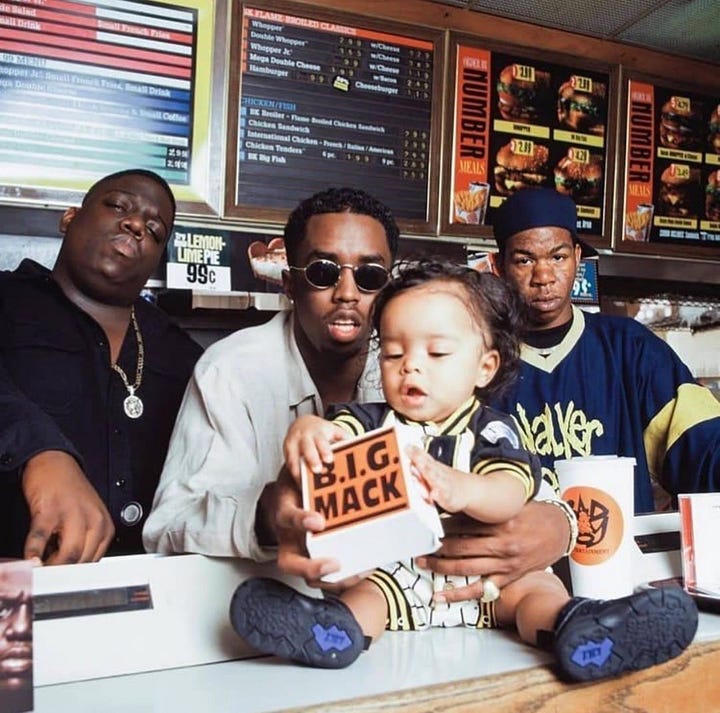
Walker Wear became one of the first urban streetwear/ hip hop brands to be accepted by outsiders (non Blacks), distributors and corporations. It wasn’t about being flashy or clean cut and dapper or proving a point to anyone. Black people within this culture just wanted clothing that were not only practical for their (street) lifestyle, but clothing that looked good, made them feel good and reflected that lifestyle. April Walker was the only one willing to listen and cater to Black people. History was made and barriers were permeated. It was revolutionary not just for hip hop, but for the fashion industry as well. Black people just wanting to live is always revolutionary though.
. . .
Walker Wear would meet its demise in 1998, due the oversaturation and subsequent collapse of the urban fashion world. Seeing herself being priced out while her designs were being copied, and mass produced by corporate giants took a toll not just financially, but mentally as well. Due to this she decided to bring Walker Wear to an end. She would go on to help/ advise other upcoming Black designers’/ rappers’ clothing lines.
P O S T 9 0 ‘ s
Walker Wear (like its founder) has been pretty quiet and… out of the way. She took a break from fashion. The greedy monster that is the industry took a toll and she even admits to falling out of love with fashion at one point.
She began dating NY Giant legend Carl Banks. They broke up in 2017 after 7 years (amicably it seems X. It’s rumored that he got her she landed a licensing deal with NFL and designed jerseys, but I couldn’t find anything creditable to support that.
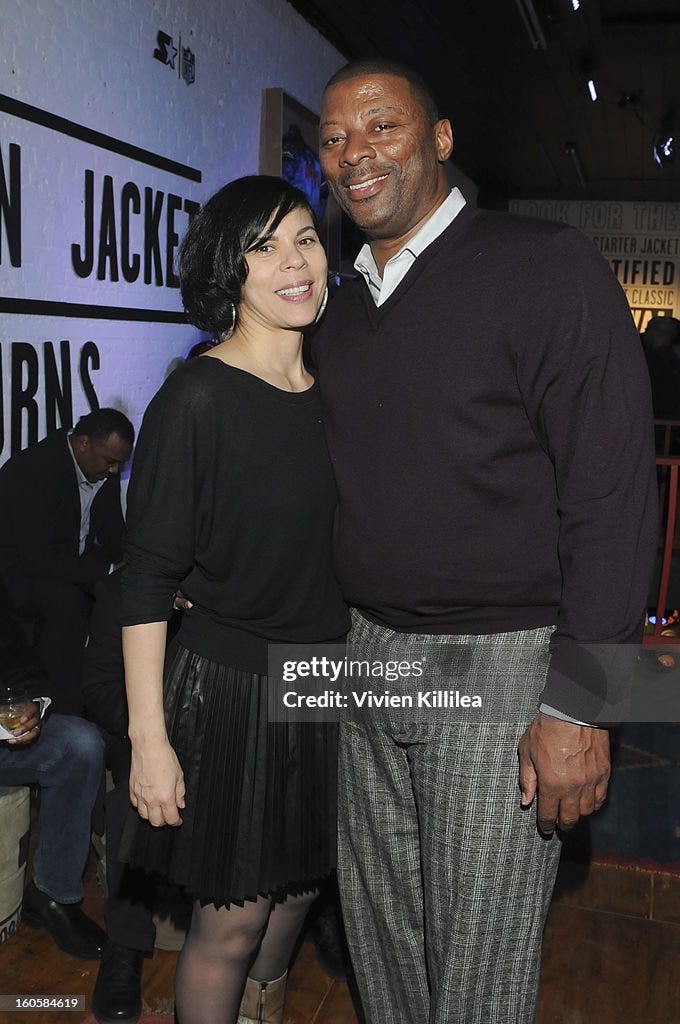
In 2017 she also begins to take interest and dabble in the cannabis industry.
Walker Wear relaunches and begins begins to make a splash/pick back up around 2018. Despite the economic shut down of 2020 due to the ongoing pandemic 2020 was her best year.
She stars in a documentary (along with Misa Hylton and Dapper Dan) The Remix: Hip Hop X Fashion’ released in 2019 on Netflix
August 2021 files April Walker files a lawsuit against Off White’s Virgil Abloh for stealing her designs for their $2,000 jacket. The lawsuit says that Abloh’s Off White brand stole her WW XXL Athletic signature mark (the two W’s side by side). Walker Wear has been using the logo since 1993. The complaint was filed on Aug. 20 and included retailers Farfetch and Saks Fifth Avenue “for federal and state trademark infringement, federal and state unfair competition, and state unfair business practices.” (If you know Virgil Abloh, you know he has this stupid, lazy 3% thing that he likes to do). Walker Wear sent a cease and desist letter to Off-White in June to stop selling the garments with the “WW” logo. Saks and Farfetch also allegedly received the letter (they were retailing the bomber jacket) and all parties continued selling the garments anyway.
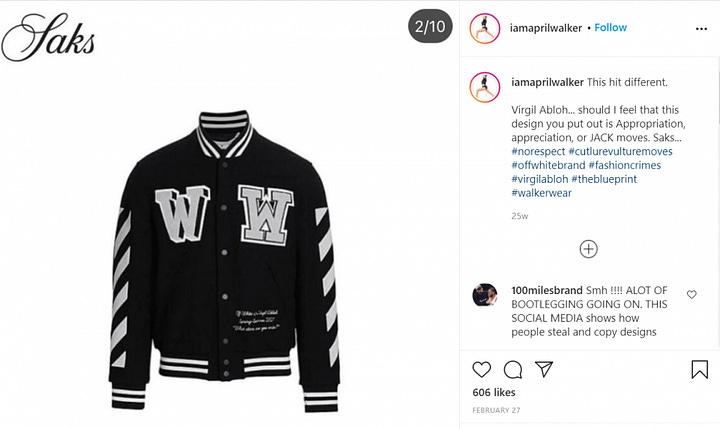
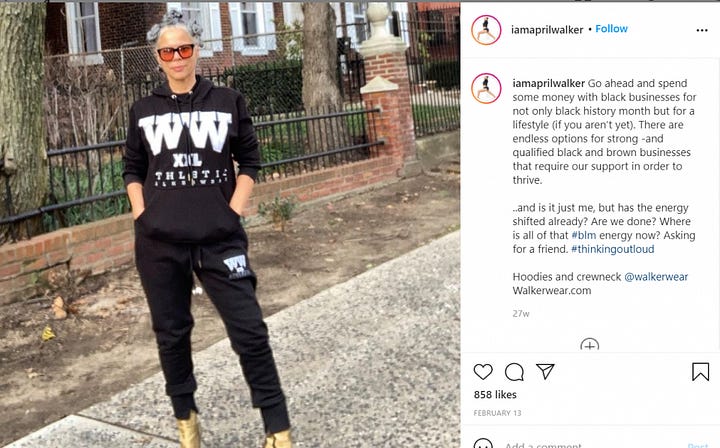
“Setting the record straight. To my tribe … I’m taking legal action against Virgil Abloh’s company Off-White, Saks Fifth Avenue, Farfetch, and all other relevant parties, and for the record, taking a stand not just for myself, but for all women and black and brown creators across the world. … This attitude with designers like Off-White and sellers like Saks and Farfetch of “taking, making and regurgitating” our magic and selling it back to us with a price tag has to change. This incident reminds me of the nasty issues of the fashion industry [like] double oppression, gender and race,”
“Amends must be made. From Dapper Dan to Pyer Moss to Tyler Perez and many more, we’ve encountered countless violations, but the future must be brighter than its pillaging past. Off- White and Saks I# have made clear that they won’t stop, so I filed a complaint in federal court and I’m not going to be outgunned,”
- April Walker via Instagram
She referenced and compared her situation to Dapper Dan.
For those who are not privy, Gucci very blatantly ripped off one of Dapper Dan’s iconic, and instantly recognizable designs he did back in the 90’s. That look was indeed so recognizable that almost everyone (in the know) knew who Gucci was copying. Due to the lack of a collaboration (or even crediting/acknowledging the inspiration) Gucci was called out by many people. Enough people to where Gucci had to save face and reconciled by giving Dapper Dan his own altier in Harlem.
April Walker feels like the same support was not garnered to her due to the fact that she is a woman.
“I also believe that the only thing worse than racism in this country is sexism. I say that because I didn’t have half of that rallying. It’s just things that you notice as a woman.”
I don’t know why she had to bring racism in it chile….., but girl please. Your point does not need the help of racism to be made. We know sexism is an issue. She talks more about her reasoning for taking legal action on her blog.
This article was certainly all business and no play, because I could not find anything about the personal life, LMAO. A nice change of pace from part 001 where we discussed Misa Hylton, I suppose.
All in all I think April Walker was revolutionary, but not in the way other people may think. She was the first woman of color (Black, Mexican and Native), the first person to show everyone how much money there was to be made in Black culture and what we now see in the streetwear industry today. She’s revolutionary the same way the first person to do anything is revolutionary. I don’t think she pursued fashion in hip hop solely for the money, but money was definitely a factor. She always knew she didn’t want to work for anyone and the hip hop culture definitely gave her a way out. At the same time she helped hip hop (as a whole) come into the look that they were envisioning and living. I feel like April Walker pioneered the business, and the larger than life entity that streetwear would become, but as for the actual look and design of streetwear….
idk about all that. I say this because the things that April Walker was designing a lot of rappers, dancers, hustlers and other people within the culture was already being worn. Many of the designs she was doing was not her own original idea. A lot of them were things people in hip hop were already wearing, they just weren’t readily available/ mass produced. April Walker even said it herself. All her customers would come in asking for the same things (wider straight leg, loose jeans, bigger pockets, lower crotch area). She also remade a lot of things, because customers would see something and want it. All she did was take what they were already wearing and asking for and make it more easily accessible. She got smart.
She utilized the power of celebrity endorsements and made the clothing people were literally asking for. She positioned herself with the right people and found herself in the right spaces.
"I credit a lot of my journey to relationships, and I don’t mean just texting," April says on an episode of Idea Generation’s ‘All Angels’ podcast July 6th, 2023.
SN: This isn’t a dig at her at all what she did opened up doors for many Black designers/ entrepreneurs, but I do find it interesting how “first”s are almost always given to mixed/light skinned people. However, yes use that privilege for good!!!
SOURCES:
April Walker
Walker Wear
The Genius Of April Walker
Hip Hop Transformed Fashion Forever: April Walker
Making My Mark: April
Walker of Walker Wear
’90s street wear fashion designer April Walker sues Off-White and Virgil Abloh
Walker Wear is credited by other sources being founded in 1991.





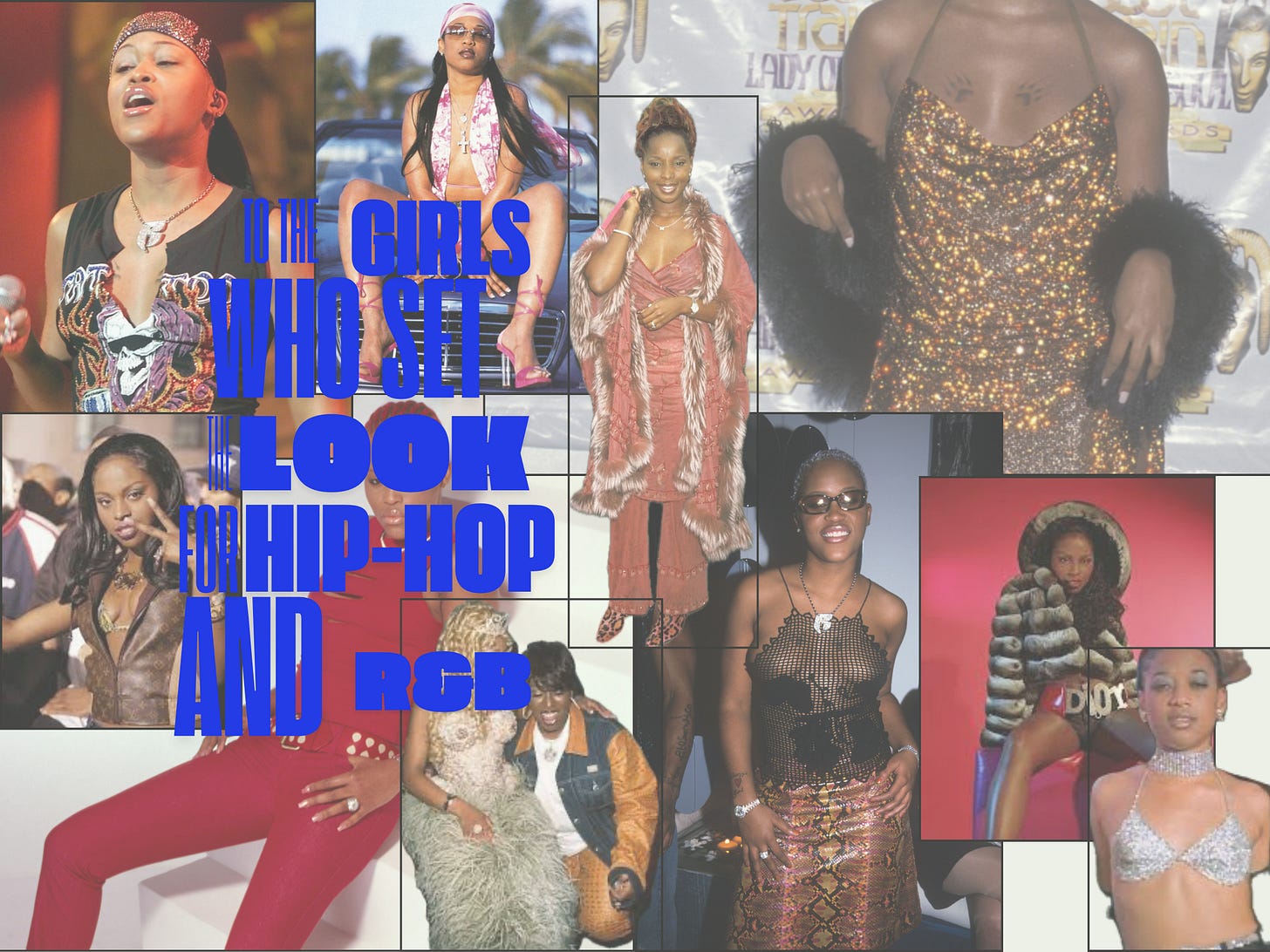

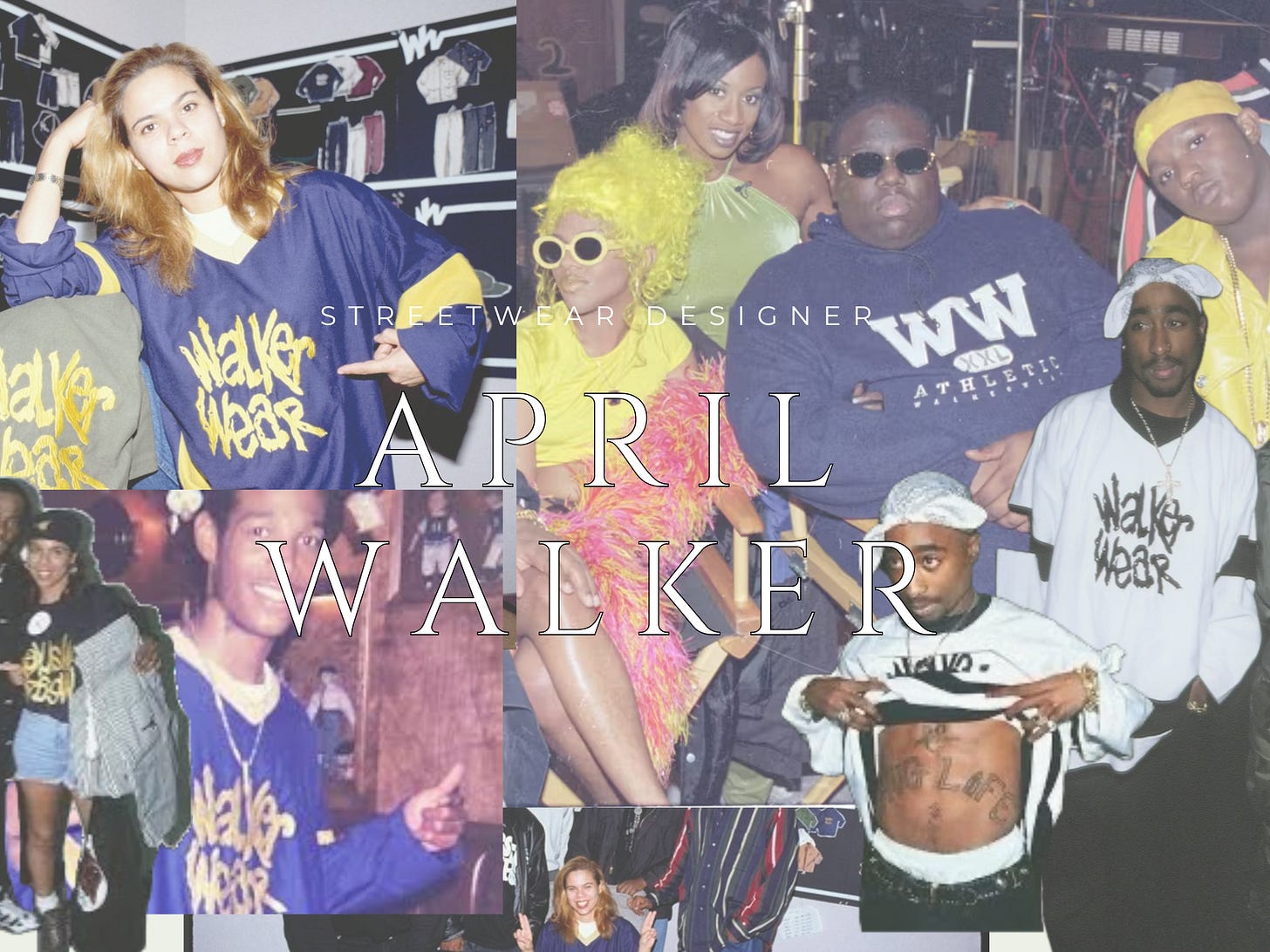
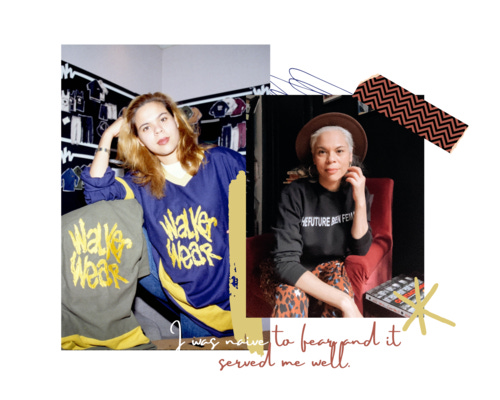
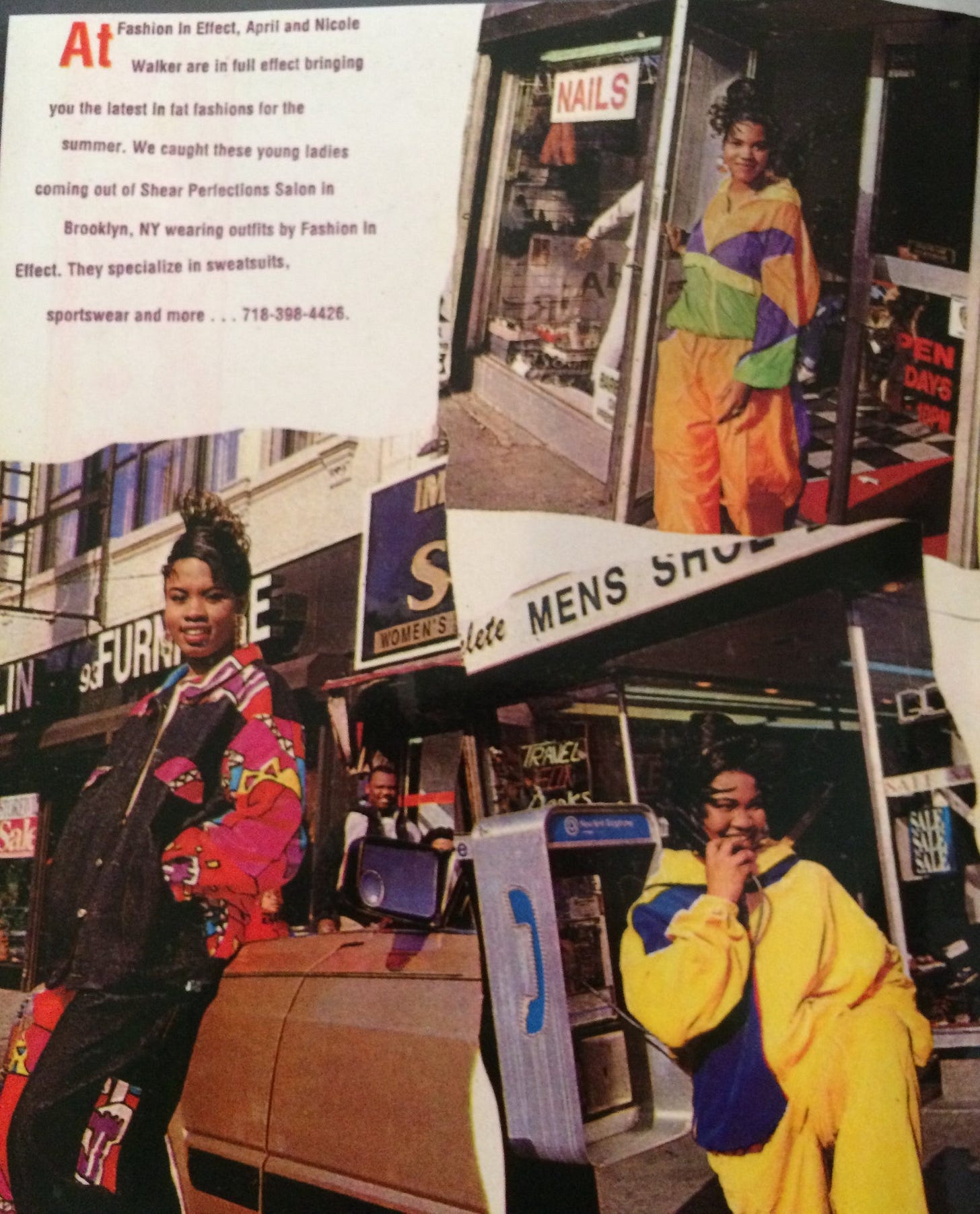
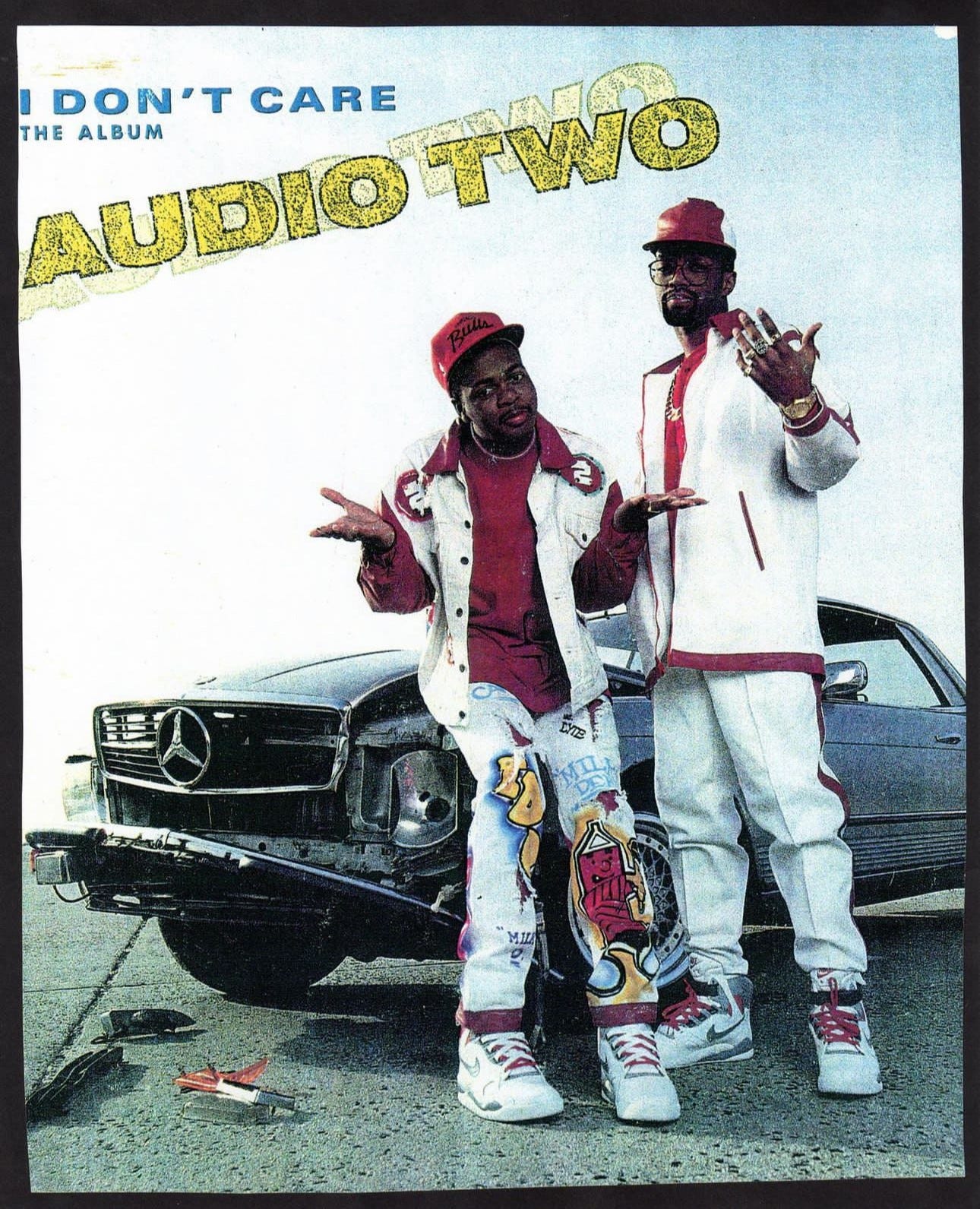
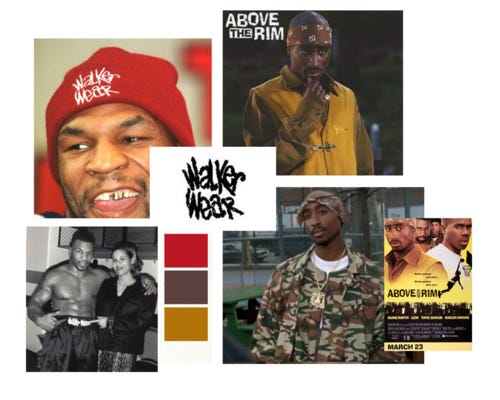
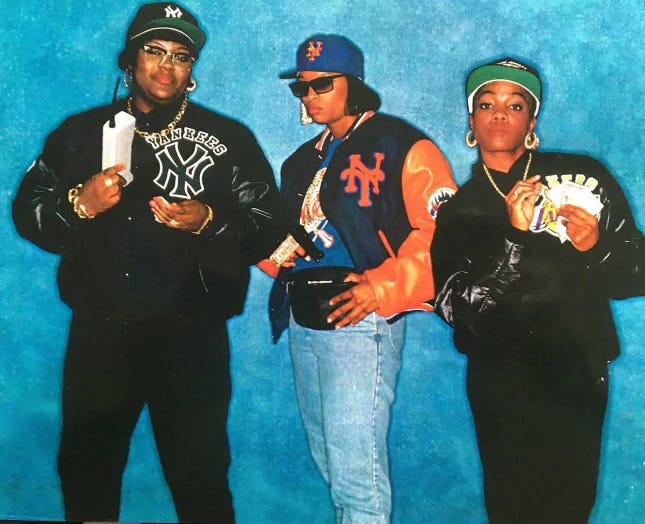
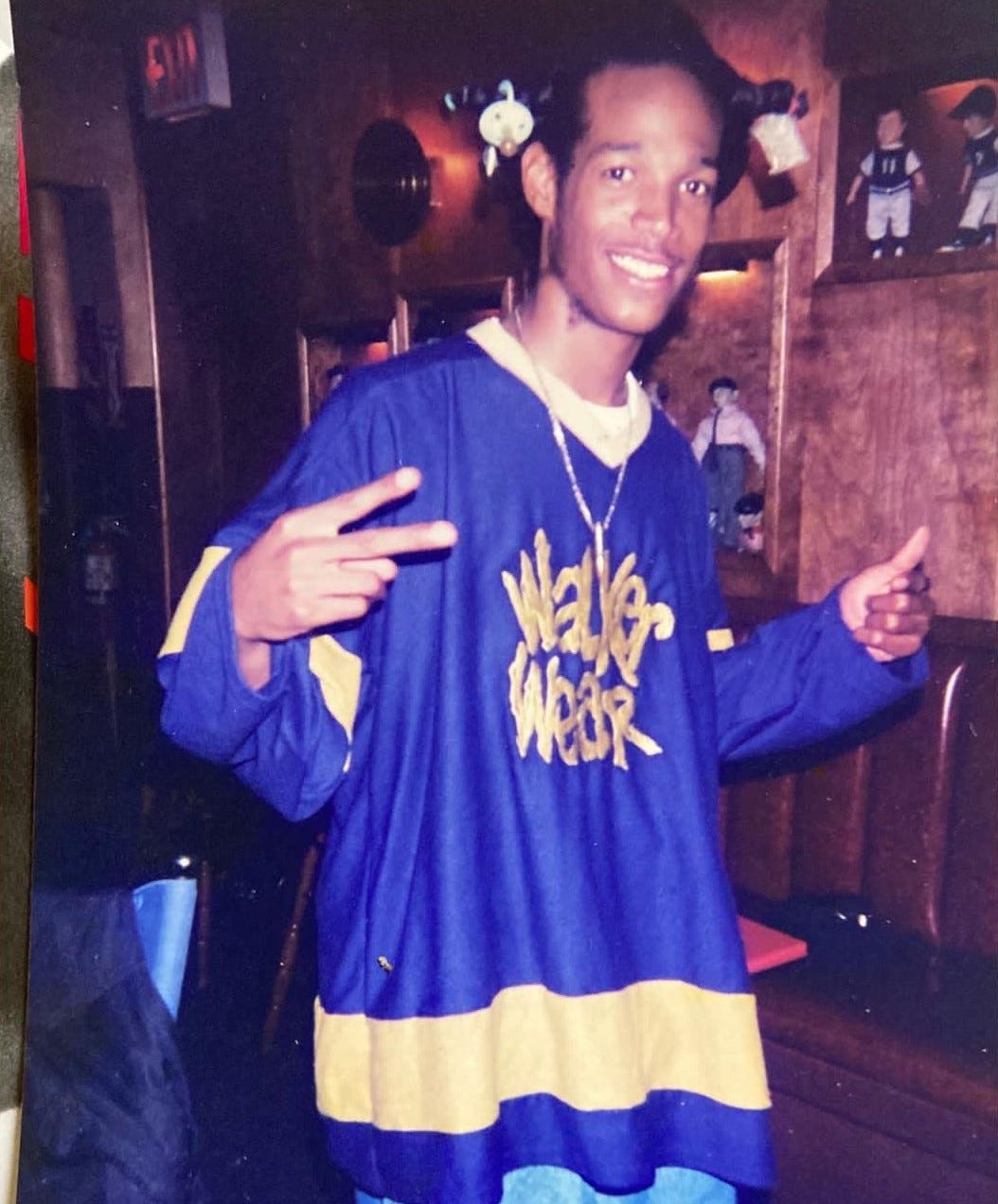
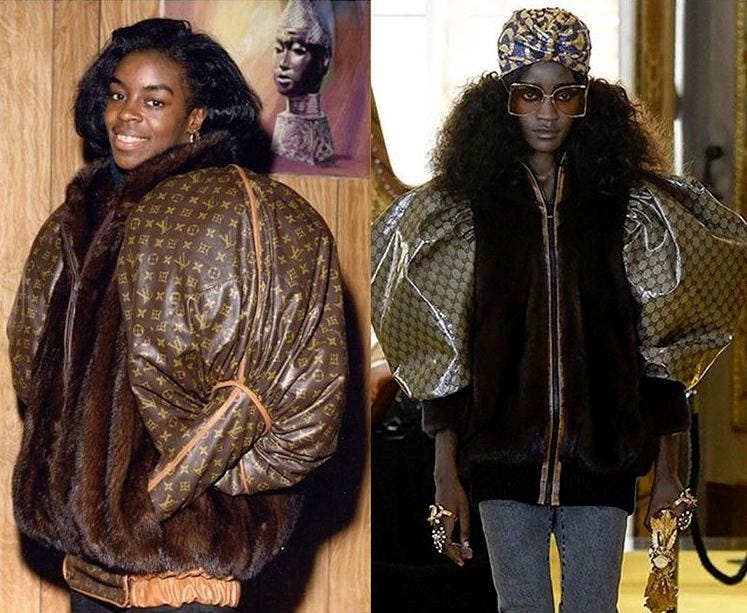
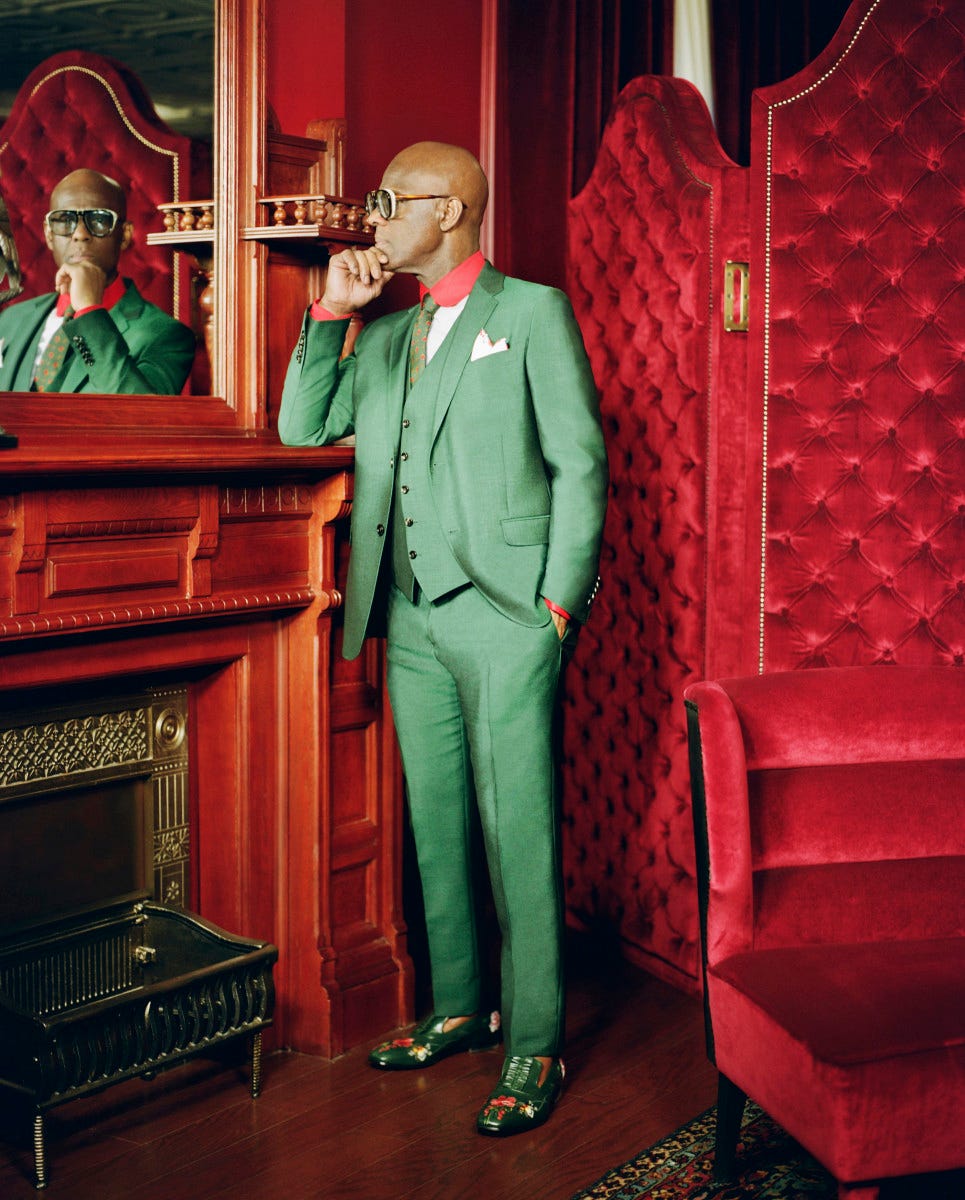

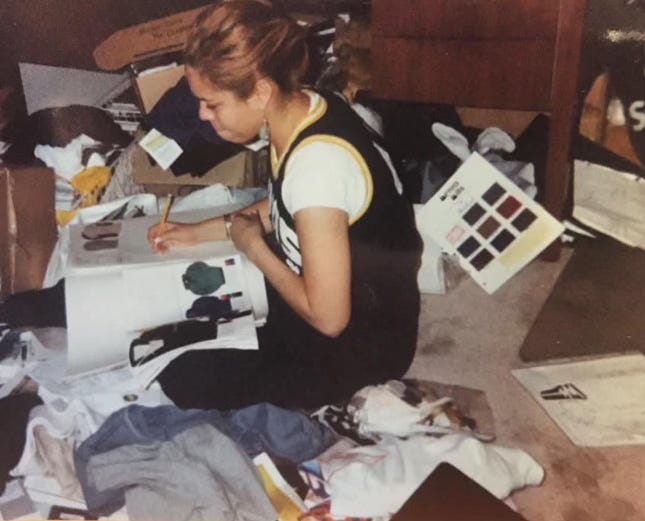
Wow, This is iconic and well presented. Thank you for sharing.